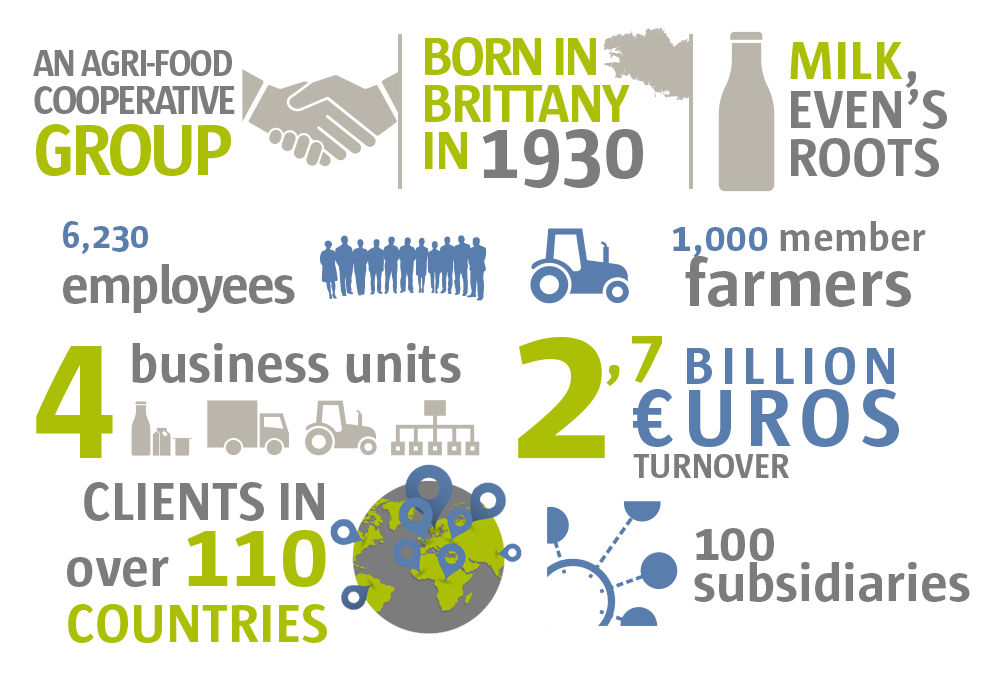Corporate Social Responsability (CSR) at Even
BackReducing our environmental impact
Even is committed to reducing the environmental impact of all of its activities, from the transportation of raw materials and logistics, to product manufacturing and packaging. In short, everything is driven by one key principle: optimisation.
Deployment of Bilan Carbone® audits
In 2011, Laïta introduced Bilan Carbone® audits at its production facilities and began making preparations for ISO 14001 certification (environmental management standard). This work revealed several potential areas of improvement. As a result, a number of changes and new cogeneration systems have been implemented at Laïta's production facilities, including the installation of water savers on steam boilers, the introduction of smoke heat recovery systems to reduce boiler energy consumption by 10%, and the addition of thermal insulation to steam pipes.
Furthermore, the use of energy efficient motors and the installation of frequency variators on machines have helped to limit energy consumption to the right level.
A focus on chilling technologies
Major initiatives have also been taken in the catering services sector. During the construction of a new warehouse, significant investment was made in the energy efficiency of refrigeration systems.
Taking greater care over packaging, waste and discharge
The reduction of packaging, waste and discharge has been one of Even's key priorities for many years. Close attention is paid to non-hazardous industrial waste (NHIW), with items such as cardboard, plastic film, aluminium and ferrous metal packaging and big bags disposed of by a single service provider.
Simple eco-friendly practices
In their day-to-day activities, Even employees act in accordance with the principles of sustainable development. Examples include the use of less polluting printing techniques and materials (Imprim'vert-certified suppliers, PEFC paper, eco-friendly water-based inks), and the introduction of environmentally friendly habits in office buildings (lighting management, shutting down computers rather than placing them on standby, reducing heating, etc.).
Optimisation at every level
Optimising the transport of food ingredients and finished products is an important way to reduce greenhouse gas emissions. Whether in terms of streamlining and pooling its milk collection rounds, modernising its vehicle fleet or introducing eco-friendly driving practices, Even has its foot on the accelerator when it comes to optimising its logistics activities.




